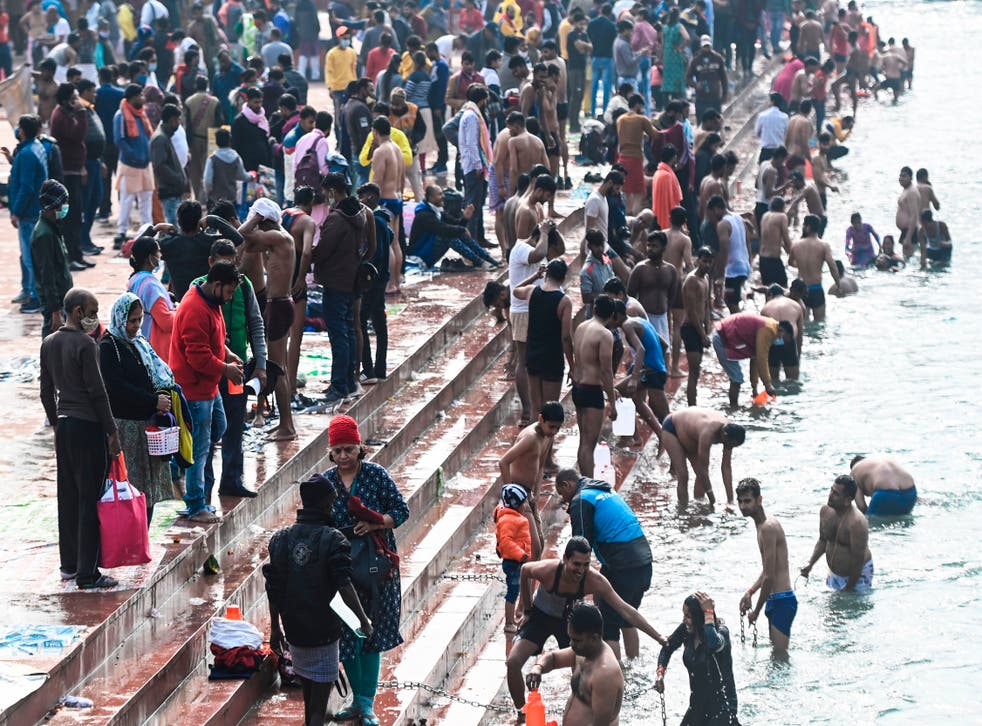
Up to 700,000 Hindu devotees have gathered along the banks of the River Ganges at Haridwar in India, marking the beginning of world’s largest religious congregation – the Kumbh Mela – amid the ongoing coronavirus pandemic.
Unlike in a normal year, the state government of Uttarkhand has yet to make formal plans, infrastructure for devotees or announcements of the beginning of the festival – but nor has it tried to deter the faithful from descending on Haridwar in huge numbers at the beginning of an auspicious period in the lunar calendar that runs from 14 January to 27 April.
The Kumbh Mela festival finds its origins in Hindu mythological texts, which state that gods and demons fought a war over a sacred pitcher containing the nectar of immortality and drops fell at four different locations. The Kumbh is staged at these four points on the Ganges on a 12-year rotational cycle.
The festival, recognised as an element of Indian cultural heritage by Unesco, welcomed a staggering 55 million people in 48 days during the last edition in Prayagraj (formerly Allahabad, in the most populous state of Uttar Pradesh) in 2019.
This year, however, India is in the midst of a Covid-19 outbreak that has seen it record more than 10 million infections, second only to the US, and there is scepticism that social distancing measures can or will be adhered to by such large numbers gathering in one place.

Because of the pandemic, the state government announced that the period of celebration at this year’s Kumbh Mela would be reduced from three and half months to 48 days.
The government said that all the protocols were followed on the first day of the congregation, Thursday, and almost 1,000 people were fined for flouting the pandemic guidelines.
“Even though I was wearing a mask and was trying to take all the necessary precautions, it is nearly impossible to follow the social distancing norms in a fair such as this," Sajan Kumar, an organiser with a private hospitality group, Kumbhmela.co.in, told The Independent.
Though an official notification of the start of Kumbh Mela is not expected until the end of February, the government has already been slammed by the state’s high court for its alleged ill-preparedness, and for making “rosy promises”.
“It is the foremost duty of the state to protect the people from the Covid-19 pandemic...," judges said. "While trying to organise a mega event, which is the largest congregation on planet Earth, it is the duty of the state to be thoroughly equipped for any contingency that may arise during the period of two months when the Kumbh Mela would be celebrated.”
The court also questioned whether the event should be going ahead given the availability of only 5,500 hospital beds designated in Covid wards to tackle infections in the city of Haridwar, noting that the festival will see the population of the city more than trebled.
The state government said earlier that though it has not closed the border, it has requested other state governments not to allow too many pilgrims to travel, without specifying specific limits. It has also decided to not erect the usual fields full of tents for housing devotees, in the hope that the lack of accommodation will discourage people from attending.






